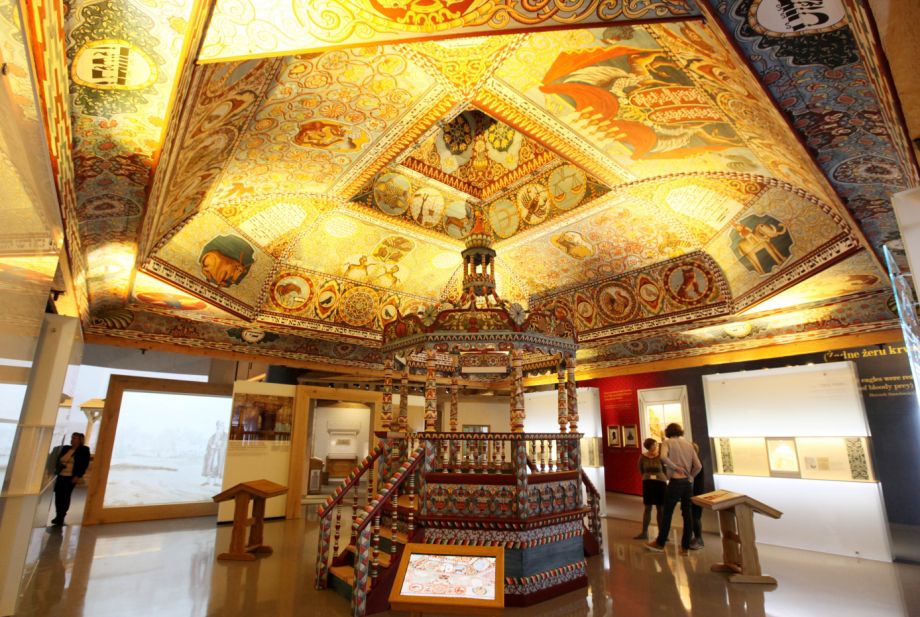Art & Exhibitions
Museum Celebrates 1,000 Years of Poland’s Jewish History


Sarah Cascone

In what was once Warsaw’s Jewish ghetto, the Polin Museum of the History of Polish Jews, a new museum dedicated to the history of Jews in Poland, opened this week. The institution offers a reminder of the Jewish culture that thrived in Poland for millenia before the devastating Nazi occupation.
Polish Holocaust survivors were in attendance on Tuesday as the museum unveiled its core exhibition, “A Thousand-Year History of Polish Jews.” The museum takes its name from the Hebrew word for Poland, Polin, which means “rest here.” When the Jews began settling in Poland in the Middle Ages, they found a tolerant government that offered a great deal of political autonomy, allowing them to thrive for many centuries.
“When you are a Jew, even if you were not born in Poland, the very name ‘Poland’ stirs up trembling and longing in your heart,” noted Israeli president Reuven Rivlin during the opening ceremony. Of 14 million Jews worldwide, nine million can claim Polish ancestry.
“The Holocaust has cast a shadow onto this great civilization and the generations of Jews who lived in Eastern Europe before the Second World War, as if those centuries of life were little more than a preface to the Holocaust,” museum director Dariusz Stola told the Associated Press. “But that is absurd. This museum stresses that 1,000 years of Jewish life are not less worthy of remembrance than the six years of the Holocaust.”
Today, Poland is home to only 30,000 Jews. Of the 3.3 million Jews in the country before the war, 300,000 survived, but faced severe persecution under communist rule. In the years that followed, the country’s once vibrant Jewish culture dried up, and was largely forgotten. “Polish history didn’t speak of Jews. It spoke of cemeteries, of the Holocaust, of the ghettos,” Piotr Wislicki, the head of a Jewish historical society, told the AP. “It spoke exclusively of death.”
After $100 million in construction costs and nearly two decades of planning, the museum provides the Polish people with a much-needed reminder of an important, culturally diverse, pluralistic chapter of their history. “Even though we aren’t Jews,” said one visitor to the AP, “we need to know about it.”